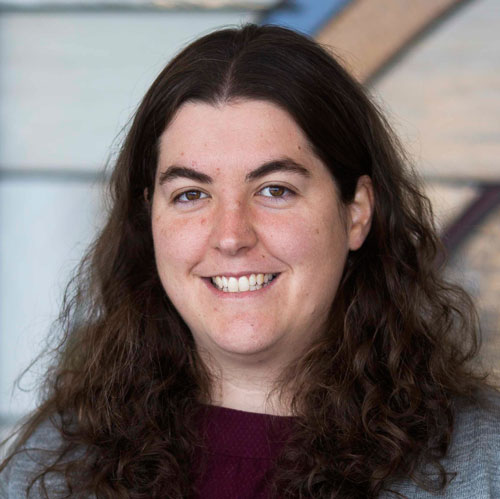New collaborative project for advancing energy justice in Detroit

Prof. Johanna Mathieu is co-leading a new project that aims to increase the understanding of residential energy consumption in three majority African American and Hispanic neighborhoods in Detroit with a focus on low and moderate-income (LMI) households. The project is done in collaboration with the research and development organization, Pecan Street, and the Detroit-based non-profit, Ecoworks.
“The overall goal is to capture high-resolution data to help design new programs for energy assistance and energy efficiency, as well as new electricity rates for low income customers,” Mathieu said. “We want to help them save money, and this can also help save energy.”
We want to help them save money, and this can also help save energy.
Prof. Johanna Mathieu
On average, energy costs for African American and Hispanic households are 43% and 20% higher, respectively, than white households. Some Detroiters spend up to 30% of their monthly income on home energy bills, which places the city among the top 10 nationally in a category that researchers call household “energy burden.” These disproportionately higher energy burdens result in household energy insecurity, or the inability to adequately afford their energy costs. Energy insecurity leads to or exacerbates a host of physical, social, economic, and health issues in communities of color.
“Climate change and racial injustice are inextricably linked. To solve one, we must solve the other,” said Pecan Street CEO Suzanne Russo. “This team will leverage our decade of data and analysis expertise to identify the gaps in information and to develop solutions that ensure the clean energy transition is a just transition.”
Climate change and racial injustice are inextricably linked. To solve one, we must solve the other.
Suzanne Russo, Pecan Street CEO
By obtaining detailed reports of energy consumption for these households, researchers hope to improve interventions aimed at reducing disparities in household energy insecurity. Data collection will be focused on capturing everything from power, voltage, current, total harmonic disturbance and more from each circuit in the house, all in timescales of seconds. That data will then be made accessible to researchers worldwide through Pecan Street’s Dataport.
“We’re tracking when things switch on and how much energy they’re consuming,” Mathieu said. “From that data, we’ll be able to see any problems with appliances or energy loss from heating or cooling due to insufficient insulation, and so on.”
In partnership with Ecoworks, the team will recruit 75 households for the study. A key goal is to ensure that all participants receive substantial benefit for contributing to the project.
“We plan to provide specific recommendations to each household so, at the end of the day, all participating customers should end up significantly reducing their energy costs or receiving some other benefit,” Mathieu said.
At the end of the day, all participating customers should end up significantly reducing their energy costs or receiving some other benefit.
Prof. Johanna Mathieu
Much of what contributes to high energy costs is old, power hungry, inefficient technology. The data provided in this study can help inform customers which of their appliances are consuming the most energy and offer suggestions for the best interventions.
These interventions could include anything from the utilization of smart power strips that help prevent costs incurred from vampire energy – which is when devices are left on, consuming energy, but are not in use – to obtaining newer, more energy efficient appliances. Many utility companies offer assistance programs to help people obtain these improved appliances. There are also organizations that provide customers with renewable energy technology, such as solar panels, with little to no cost to the consumer. The researchers believe the data from this study can help improve these programs while also helping to connect more people to these programs.

“The important thing is we’re collaborating with community partners who understand the community, and they’re telling us how to best serve the community in the process,” Mathieu said. “That’s why I feel like this is going to go somewhere, and I’m excited.”
The project, “Enhanced Energy Monitoring for Energy Justice in Detroit,” is funded with an Anti-Racism grant from the Office of the Vice President for Research, in partnership with the National Center for Institutional Diversity. In addition to Mathieu, the U-M team is led by Prof. Tony Reames from the School for Environment and Sustainability, Research Prof. Carina Gronlund from the Institute for Social Research, and Prof. Marie O’Neill from the School of Public Health.
This research adds to an existing project co-led by Reames and Mathieu focused on improving home energy efficiency and lowering monthly utility bills. In that project, Mathieu leads the team tasked with exploring how smart meter data can be used to improve utility program and rate recommendations and also the possibility of reforming the utility rate structure to provide the basic electricity needs of LMI households for free while ensuring that the utility provider’s costs are covered. That project is supported by the National Science Foundation and funded through the Smart and Connected Communities Program.
 MENU
MENU 
